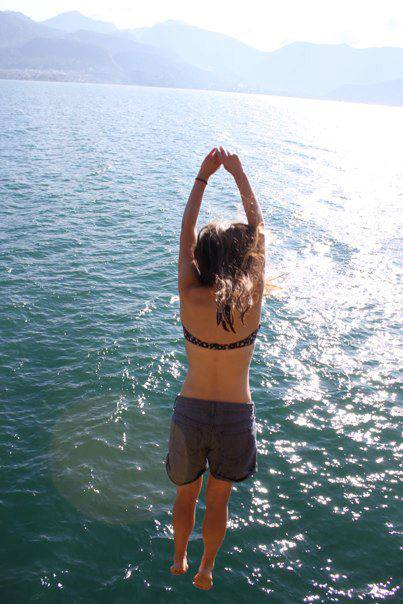This weekend, I drove up to New Hampshire with my boyfriend to attend his mountain bike race. Though I’ve accompanied him to many of these events, I never fail to experience a certain awe as I watch the racers navigate the rocky, steep terrain for hours, nobly picking themselves up after a hard fall. And without fail, I always find myself thinking, “My gosh, I could never be that brave.”
It’s interesting how our definition of bravery changes over time. As children, boldness was associated with any manner of physical feat: climbing to the top of the jungle gym, jumping off the swing set on an upswing. Junior high and high school bring first kisses, first breakups, and the experience of baring your soul to another person for the first time. In college, bravery means choices–hard choices–that serve to dictate our professional, and often personal, future.
Immediately out of college, my definition of bravery felt all-encompassing. I hoped to be brave in my career (making hard decisions and sacrifices in order to preserve my emotional well-being), in my relationships (speaking honestly and openly, and allowing for a certain amount of vulnerability with those closest to me), in extracurricular activities (for example, getting into a difficult pose in yoga class), and standing up for myself in situations where I was unfairly targeted or belittled.
Many people think that bravery is predicated on fear; a “feel the fear but do it anyway” type of thing. In my experience, any action that results from supreme discomfort is not bravery as much as it is risk. Unlike risk, bravery requires a deep self-knowledge and humility, and is much more likely to occur inwardly than outwardly. To be truly brave, you can act without recognition or other accolades.
When I reflect on my own life, I can see that I mislabeled a lot of my risks and leaps of faith as “brave.” Taking risks and challenging oneself are very important, of course, but my own experience with bravery doesn’t involve jumping off a cliff or moving across the country for a job. No, my moments of bravery have been so subtle and quiet that if I’m not paying attention, I might miss them.
My most treasured moments of bravery have been when I’ve been completely honest with myself. For example, I recently admitted that my planned career trajectory, though perfect in theory, is riddled with significant impediments that essentially prevent me from moving forward. On a more practical level, when I acknowledge that I’ve acted out of jealousy, or low self-esteem, or selfishness, that is bravery, too.
It’s often said that we’re our own worst critics, and it’s true: when we have the courage to face ourselves and come to terms with our weaknesses, our bravery emerges when we choose not to fight or disparage ourselves. We are brave when we see and accept our imperfect selves and venture into the world armed with that knowledge. Today, I challenge you to be brave with yourself, whatever that means for you.
Get more like this–sign up for our newsletter for exclusive inspirational content!
Also by Molly: How to Deal with Career Anxiety
Is Integrity Keeping You from Living Life Fully?
How to Confront Your Fears and Self-Discover
Photo by: Molly Lansdowne





